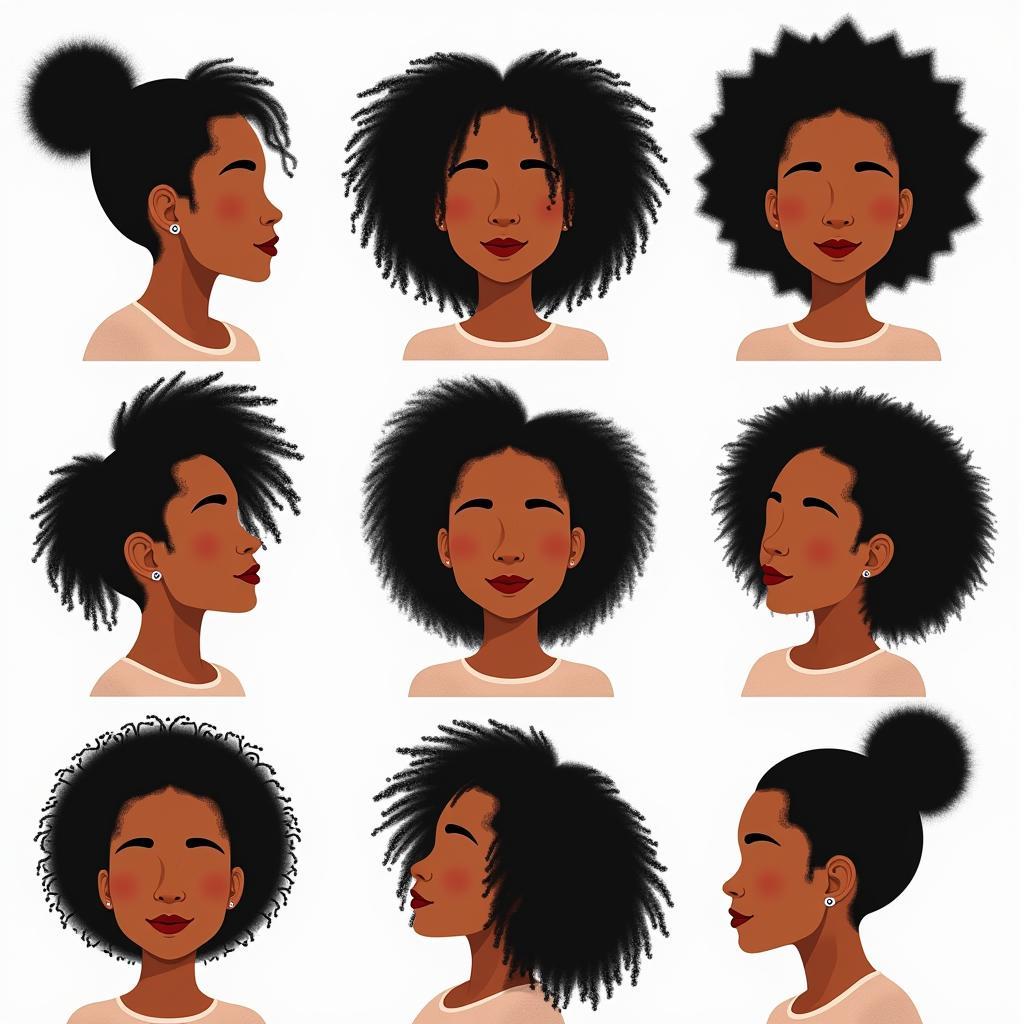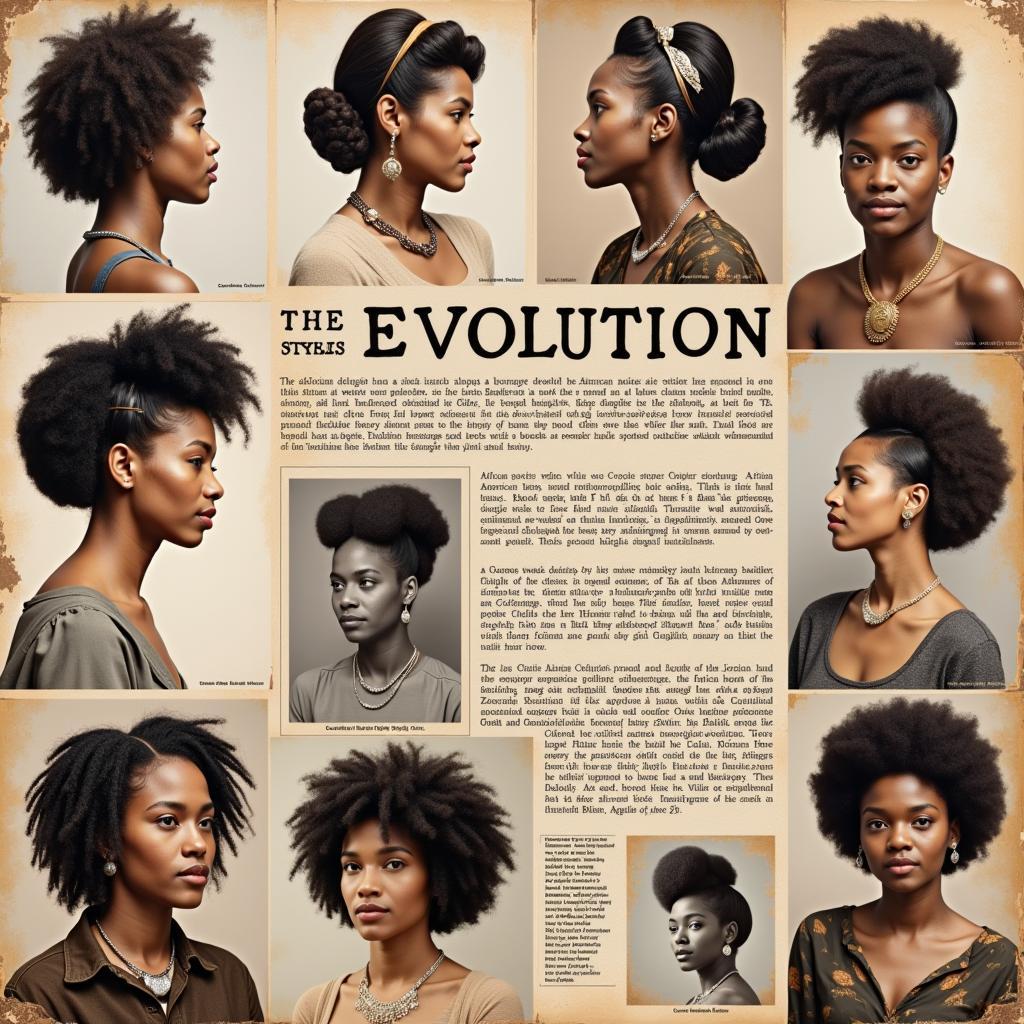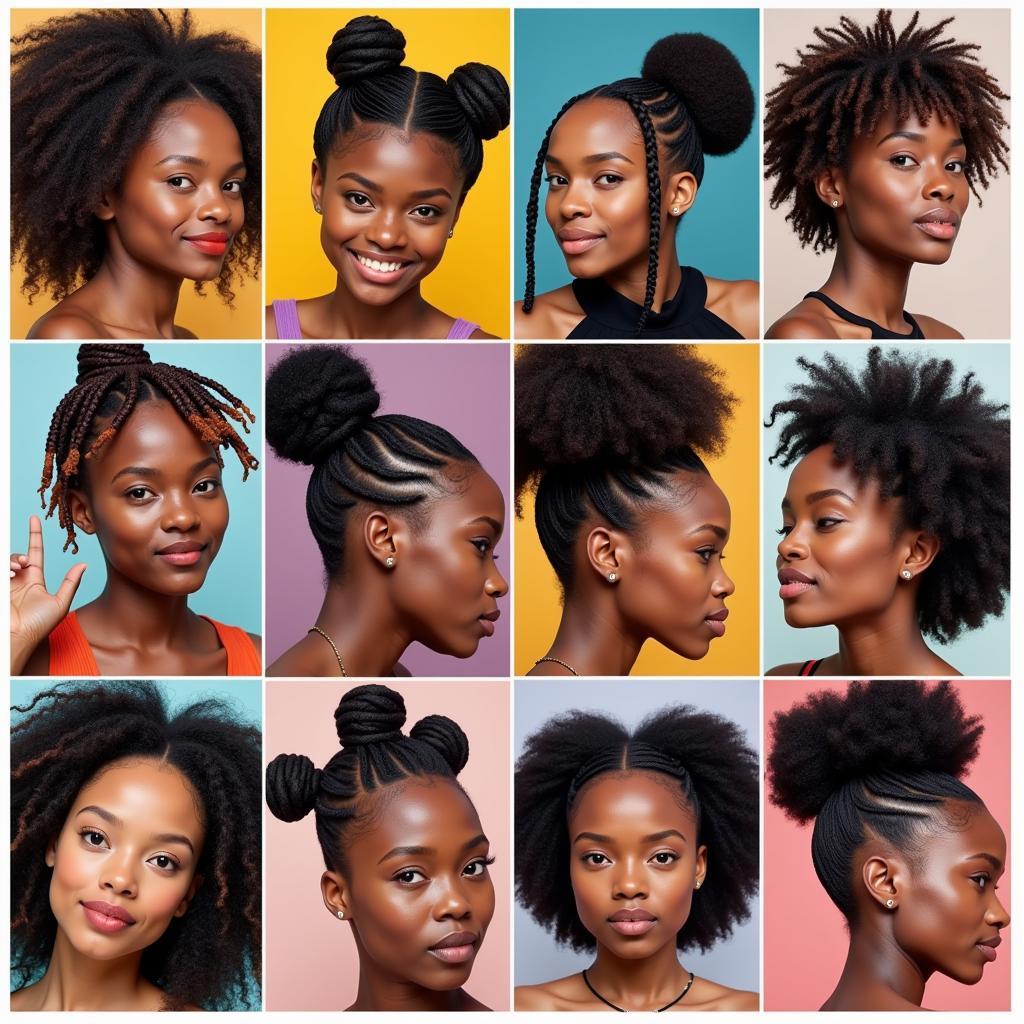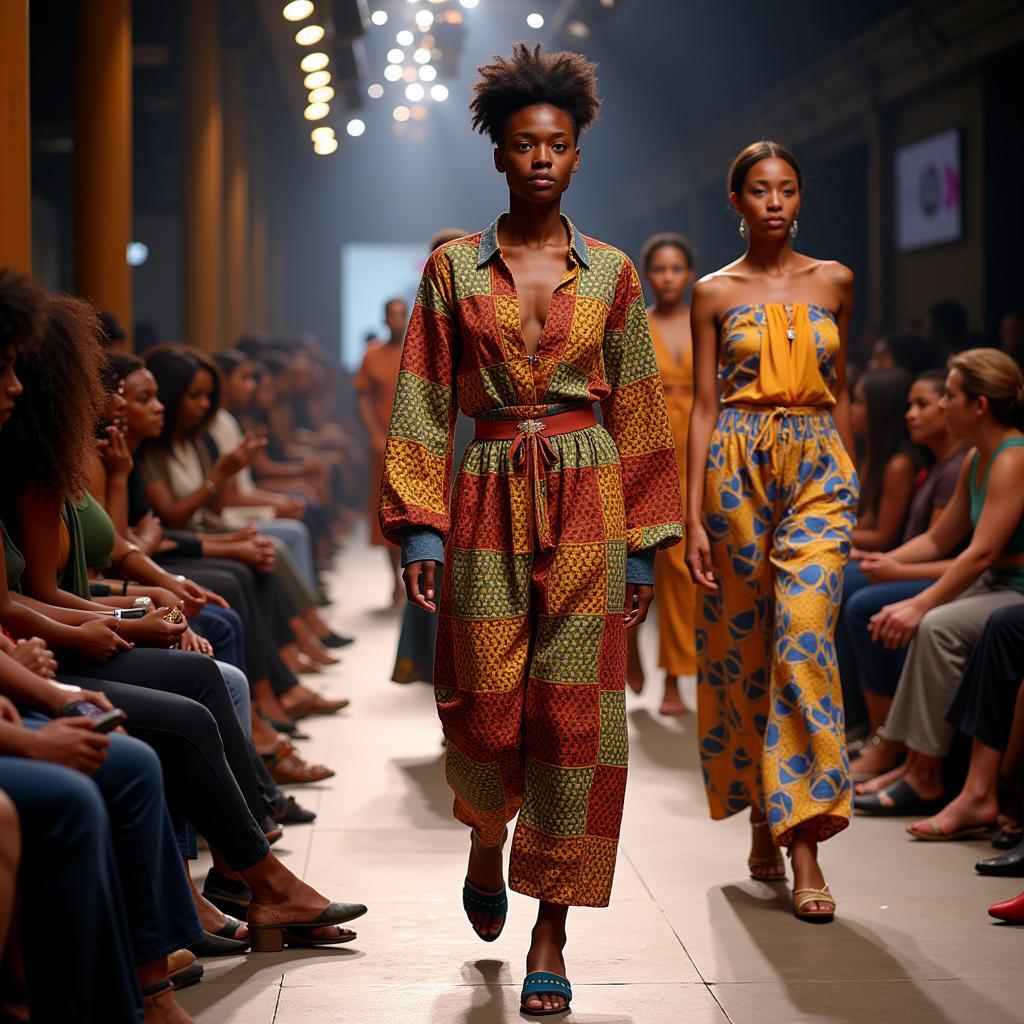African American Natural Hair: A Celebration of Heritage, Beauty, and Versatility
For generations, African American Natural Hair has been more than just strands; it’s a powerful statement of identity, a reflection of cultural heritage, and a celebration of natural beauty. From the tight coils of 4c hair to the loose waves of 3a curls, the diversity and uniqueness of African American hair is truly remarkable. This article delves into the rich history, care practices, and evolving styles that make African American natural hair a captivating aspect of Black culture.
 African American Natural Hair Diversity
African American Natural Hair Diversity
A Journey Through Time: The History of African American Natural Hair
The story of African American hair is intricately woven with the threads of history. In ancient Africa, hairstyles held deep cultural and societal significance, often signifying social status, tribe, and spirituality. Intricate braids, twists, and locs weren’t just styles; they were forms of art and communication.
However, the transatlantic slave trade brought about a drastic shift. Forcibly removed from their homelands, Africans were stripped of their traditions, and their hair, viewed as different and untamed, became a target of prejudice. The pressure to conform to European beauty standards led to the widespread use of hot combs and chemical relaxers, often at the expense of hair health.
 Historical Images of African American Hairstyles
Historical Images of African American Hairstyles
The Natural Hair Movement: Embracing Authenticity and Self-Love
The mid-20th century witnessed a resurgence of pride in natural hair. The Civil Rights Movement played a pivotal role, as Black Americans sought to reclaim their identities and challenge Eurocentric beauty norms. Figures like Angela Davis and Nina Simone became icons, embracing their afros as symbols of Black power and resistance.
This movement wasn’t just about aesthetics; it was about self-acceptance and celebrating natural features. It challenged the notion that straight hair was the only standard of beauty. Today, the natural hair movement continues to thrive, fueled by online communities, bloggers, and influencers sharing their journeys, tips, and styles.
Caring for Your Crown: African American Natural Hair Care
Just like any other hair type, African American natural hair requires proper care and attention to flourish. Due to its unique coil structure, it tends to be drier and more prone to breakage. Understanding your hair porosity and texture is key to choosing the right products and techniques.
Moisturization is crucial. Deep conditioning treatments, leave-in conditioners, and natural oils like coconut oil, jojoba oil, and shea butter can help lock in moisture and prevent breakage. Gentle detangling, protective styling, and avoiding excessive heat are also vital for maintaining healthy, vibrant natural hair.
A World of Style: Expressing Individuality Through African American Natural Hairstyles for Kids and Adults
One of the most captivating aspects of African American natural hair is its incredible versatility. From elegant updos to playful braids, the styling possibilities are endless.
- Braids: A timeless and versatile style, braids offer endless creativity. From classic cornrows to intricate box braids and goddess braids, they are not only stylish but also protective, minimizing manipulation and breakage.
- Twists: Similar to braids, twists offer a chic and low-maintenance option. They can be styled in various ways, from simple two-strand twists to more elaborate flat twists and Senegalese twists.
- Locs: A powerful statement of identity and spirituality, locs involve allowing the hair to naturally coil and lock together. They come in various sizes and styles, reflecting individual preferences and cultural influences.
- Wash-and-go: For those who prefer a more effortless look, the wash-and-go method embraces the natural curl pattern. Defining products like gels, custards, and creams can enhance curls and minimize frizz.
 Variety of African American Natural Hairstyles
Variety of African American Natural Hairstyles
Beyond the Surface: The Significance of Natural Hair
Choosing to wear your hair natural is a deeply personal decision. For many, it’s a journey of self-discovery, a celebration of heritage, and a rejection of societal pressures. It’s about embracing your authentic self and challenging conventional beauty standards.
“Natural hair is not a trend for us, it’s a movement,” says Maya Allen, a natural hair advocate and influencer. “It’s about reclaiming our narrative, embracing our roots, and defining beauty on our own terms.”
Frequently Asked Questions
Q: How often should I wash my natural hair?
A: Washing frequency varies depending on hair type and lifestyle. Generally, washing once or twice a week helps retain moisture and prevent dryness.
Q: What are some good products for natural hair?
A: Look for products specifically designed for natural hair, focusing on moisturizing and strengthening ingredients. Shea butter, coconut oil, and aloe vera are excellent natural options.
Q: How can I prevent breakage?
A: Gentle detangling, moisturizing regularly, protective styling, and minimizing heat styling can significantly reduce breakage.
Need More Information?
For further insights on African American natural hair care recipes, African American hair color, or if you’re looking for reputable African American natural hair salons in DC, our website offers a wealth of resources.
Contact Us
For any further assistance or inquiries, feel free to reach out to us at:
Phone Number: +255768904061
Email: kaka.mag@gmail.com
Address: Mbarali DC Mawindi, Kangaga, Tanzania
Our dedicated customer service team is available 24/7 to assist you.


